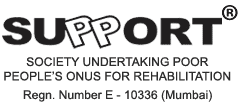Cause Area
Primary Sectors
Secondary Sectors
Geographies Served
Programs
-
Rehabilitation Programme - Boys & Girls
District
Mumbai
States
Maharashtra
The rehabilitation programme focuses on behavioural change and integration into mainstream society after detoxification. Self-reflection facilitates transformation in behaviour, attitudes, habits, lifestyle, and thought processes. Group sessions provide life skills education, grooming, interpersonal skills, self-awareness, decision-making, stress coping, and emotional management. One-to-one sessions address the multidimensional aspects of drug addiction. Recreation, both indoor and outdoor, is essential for holistic development, teaching values, concentration, teamwork, and stability. Outdoor activities provide an outlet for energy, while indoor activities promote engagement and are facilitated by staff or peer educators. Picnics and outings expose children/youth to new experiences, disconnected from drug use.
-
Social Integration Programme
District
Mumbai
States
Maharashtra
Social integration is facilitated through various means. Peer Educators, who are former addicts trained by the organisation, assist in the rehab programme, handling routine tasks and gaining work experience. The "Half Way Home" programme helps stabilize children, preparing them for reuniting with families or vocational training. Family reunion is encouraged to establish bonds and overcome negative emotions. Staff initiate contact with families through home visits and letters, coordinating with the Child Welfare Committee for children under 18. The child is formally handed over to parents/guardians, ensuring proper documentation and support.
-
Drug Prevention Programme
District
Mumbai
States
Maharashtra
Prevention and awareness programmes on the harmful effects of drug abuse in educational institutions (schools, colleges, and communities) have become crucial due to the increasing prevalence of drug addiction among children and youth. Influences from media, such as films, television, advertisements, and books, shape attitudes and behaviours, while the breakdown of family value systems and changing societal dynamics contribute to the vulnerability of children. Empowering young individuals through education and awareness encourages responsible decision-making and a drug-free lifestyle, ensuring a healthier and normal life.
-
Detoxification Programme
District
Mumbai
States
Maharashtra
This programme relieves physical discomfort and motivates them towards a promising future. It prioritizes taking children to medical centres for toxin removal, serving as the initial step towards drug cessation. Under the Juvenile Justice Act, all children below 18 are registered with the Government-appointed Child Welfare Committee. The detox programme aims to free individuals from addiction, encourage self-reflection, provide supervised treatment, offer information about rehabilitation, and raise awareness of addiction as a disease. The broader objective is to combat drug abuse among street children/youth through detoxification and rehabilitation initiatives, ensuring access to medical services, nutrition, regular check-ups, and post-detox health monitoring for better well-being.
Impact Metrics
-
Contacted Children and Youth Through Day Care Centre.
Year-wise Metrics- 2016-17 1065
- 2017-18 974
- 2019-20 1400
- 2020-21 434
-
Number of Children and Youth Referred to Detox Support
Year-wise Metrics- 2016-17 75
- 2017-18 73
- 2019-20 107
- 2020-21 50
Leadership Team
-
Ramesh Agarwal
Trustee
-
Sapna Agarwal
Trustee
-
Kalindi Mazumdar
Trustee
-
Ramesh Thakkar
Trustee
-
Prerna Sharma
Trustee
-
Ms. Nigama Mascarenhas
Registration Details
-
PAN Card
AABTS6799M
-
Registration Number
20169
-
CSR Form 1
Not Available
-
80G
AABTS6799MF19853
-
12A
AABTS6799ME19897
-
FCRA
083780491
About
-
Headquarters
Mumbai, Maharashtra
-
Since
2009
Impact
SUPPORT has established 3 centres in Vakola and Saphale, providing education opportunities to a total of 131 children, with 79 boys and 52 girls enrolled in various standards, 11 boys and 4 girls are studying in the 10th standard, achieving a 100% pass rate with results ranging from 60% to 80%, facilitated admission for 11 children into I.T.I. courses, furthering their vocational prospects and creating a positive impact on their lives.
Vision and Mission
SUPPORT's vision is to encourage street children and homeless youth to overcome their drug addiction and reduce risk behavior through detoxification, rehabilitation and mainstreaming.
Political & Religious Declarations
-
Political Affiliation
-
Religious Affiliation
Location
-
Headquarters
Manthan Plaza, 3rd floor, Vakola Market, Nehru Road, Santacruz
Directions, Mumbai, Maharashtra -
Offices in Cities
Other Details
-
Type
Non-profit
-
Sub Type
Trust
Technology Adoption
-
SOC 2 Compliant
No
-
Financial Management
-
Beneficiary Management



